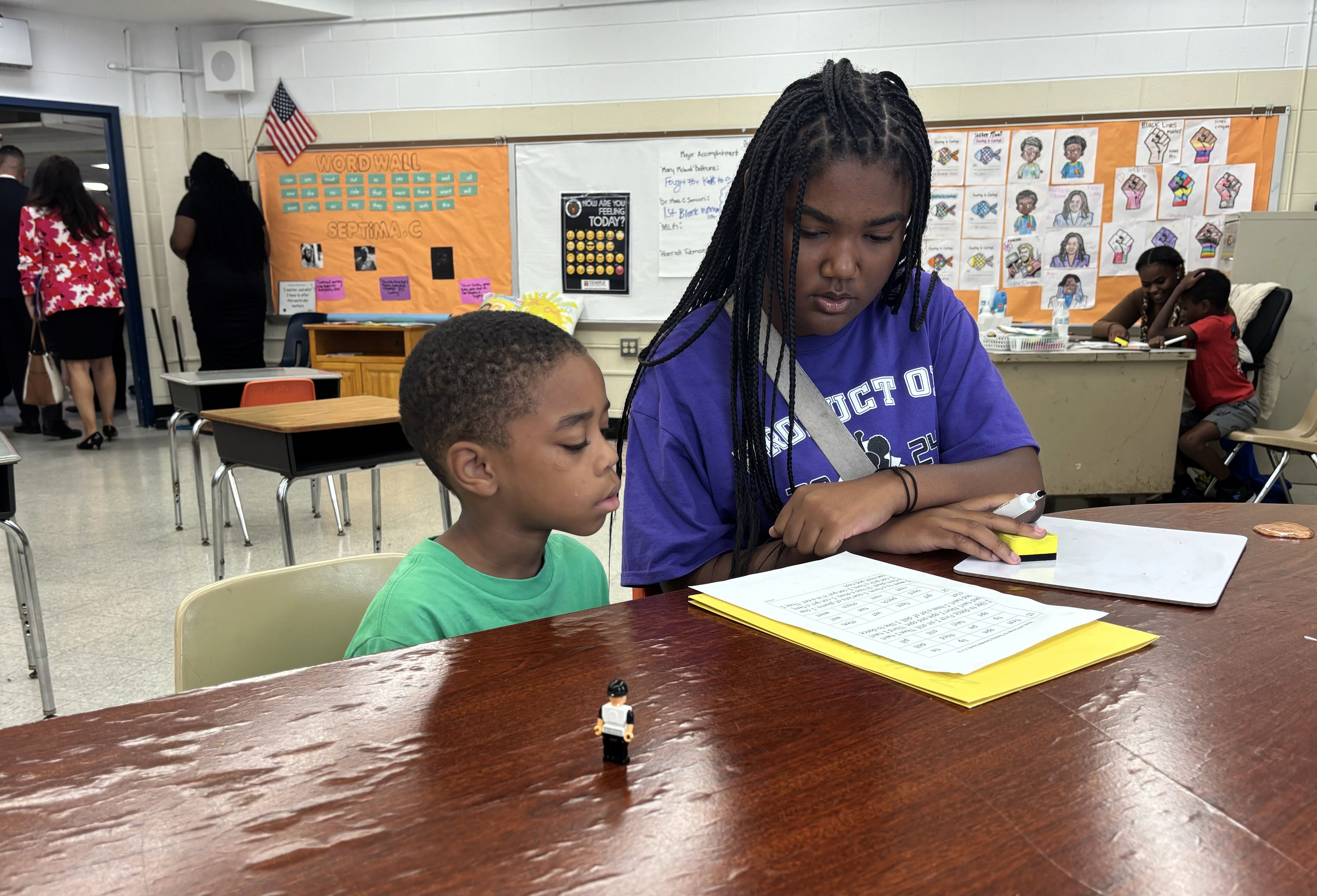Report on the Empowering Future Higher Education Policy Leaders Fellowship by TICAS
Introduction
The Institute for College Access & Success (TICAS) launched the Empowering Future Higher Education Policy Leaders Fellowship in 2024. This initiative brought together a diverse cohort of ten fellows from across the United States, committed to advancing equitable higher education policies that improve college affordability and student success. The program ran from September 2024 through March 2025, focusing on advocacy, leadership, and lived experience to influence federal policymaking.
Alignment with Sustainable Development Goals (SDGs)
The fellowship directly supports several United Nations Sustainable Development Goals, including:
- SDG 4: Quality Education – by promoting equitable access to higher education and supporting policies that enhance student success.
- SDG 10: Reduced Inequalities – through empowering leaders from Minority-Serving Institutions (MSIs) and underrepresented communities to influence policy.
- SDG 17: Partnerships for the Goals – by fostering collaboration among fellows, policymakers, and advocacy groups to drive systemic change.
Building Knowledge and Advocacy Skills
TICAS designed the fellowship to equip emerging leaders from community colleges, Historically Black Colleges and Universities (HBCUs), Hispanic-Serving Institutions (HSIs), Tribal Colleges & Universities (TCUs), and other MSIs with the necessary knowledge, skills, and networks to become effective policy advocates.
Fellowship Cohort Composition
- Student affairs professionals
- Admissions counselors
- Academic researchers
- Community foundation leaders
Program Structure
- Four virtual sessions covering higher education policy, legislative processes, and advocacy techniques.
- Two in-person convenings in Washington, DC, providing immersive federal policymaking experiences.
During the program, fellows engaged with policy experts, researchers, and practitioners to enhance their policy analysis, messaging, and storytelling skills. The in-person sessions included meetings with key stakeholders and prepared fellows for advocacy meetings on Capitol Hill.
Making an Impact on the Hill
Fellows participated in a dedicated day on Capitol Hill, advocating for TICAS policy priorities that reflect their direct experiences with students. Key advocacy areas included:
- Expanding support for Pell Grants
- Increasing access to evidence-based programs for first-generation and low-income students
Fellows met with congressional staff representing their home districts and states, sharing personal and professional insights to highlight the real-world impact of policy decisions on students and families. This engagement emphasized the importance of diverse voices in policymaking and demonstrated the power of community-driven advocacy.
Congressional Offices Engaged
- Senator Adam Schiff (California)
- Senator Alex Padilla (California)
- Senator Reverend Raphael G. Warnock (Georgia)
- Senator Dick Durbin (Illinois)
- Senator Cindy Hyde-Smith (Mississippi)
- Senator Thom Tillis (North Carolina)
- Senator John Cornyn (Texas)
- Representative Jimmy Gomez (California – District 34)
- Representative Greg Steube (Florida – District 17)
- Representative Sean Casten (Illinois – District 6)
- Representative Michael Guest (Mississippi – District 3)
- Representative Valerie Foushee (North Carolina – District 4)
- Representative Alma Adams (North Carolina – District 12)
- Representative Joaquin Castro (Texas – District 20)
Reflections from Fellows
Upon completion of the fellowship, participants shared insights on their experiences and the skills gained, highlighting the program’s impact on their leadership and advocacy efforts.
“The fellowship reinforced how critical it is for students and professionals from diverse backgrounds to be involved in policy discussions. It also highlighted the importance of relationship-building in advocacy efforts and how strategic communication can influence change.”
– Nathaniel Ilo, Admissions Counselor for Diversity Initiatives, University of California, Santa Barbara
“Engaging in policy at the federal level enables me to be more effective in my work, ensuring that my advocacy and philanthropic efforts are grounded in a broader understanding of systemic challenges and opportunities. Moving forward, I am committed to integrating this policy awareness into my work, ensuring that the students, families, and communities I serve are not just supported at the local level but also uplifted through national policy efforts that impact their futures.”
– Kesa Jessup, Program Director, Access to Postsecondary Education, Winston-Salem Foundation
“Sustainable policy change doesn’t happen in a vacuum; it takes diverse voices and strong partnerships to make a lasting impact.”
– Marie Roberts, Assistant Director for Communications, Policy, and Advocacy, Woodward Hines Education Foundation
“Skill-wise, I walk away with stronger policy literacy, greater confidence in engaging with decision-makers, and a clearer understanding of how to translate campus-level issues into language that resonates at the federal level. But just as importantly, I leave with a renewed sense of responsibility. I know I have a role to play—not just as a counselor or educator, but as someone who can connect the lived experiences of students on the margins to the people crafting the policies that affect them.”
– Tristin Fowler, Doctoral Candidate, University of Southern California
“One of my biggest takeaways from the fellowship is the importance of storytelling in shaping and influencing higher education policy. I now have a deeper appreciation for how lived experience—particularly from MSIs, community colleges, and underserved student populations—can be translated into compelling narratives that resonate with policymakers and drive change.”
– Dawn Matthews, Associate Dean of University College, North Carolina Central University
“Throughout the fellowship, I gained valuable skills in communicating my work and its connection to reforms around carcerality. I also learned the importance of engaging in dialogue with those who may not fully align with my advocacy, and that finding common ground rooted in mutual respect is possible and necessary. These lessons will be deeply incorporated into my dissertation and future interactions, as I hope to encourage others to see policy not as intimidating, but as a powerful and necessary tool for change.”
– Armando Lizarraga, Doctoral Candidate, The University of Texas at Austin
Looking Ahead
The success of the inaugural Empowering Future Higher Education Policy Leaders Fellowship highlights the critical need for intentional investment in future policy leaders, especially those with lived experiences reflecting the students and communities most impacted by higher education policies.
As federal policymakers continue to debate the future of postsecondary affordability, access, and student success, it is imperative that members of Congress listen to community voices advocating on behalf of today’s students. TICAS remains committed to expanding this program to build a robust pipeline of diverse advocates in higher education policy, thereby advancing the Sustainable Development Goals related to quality education, reduced inequalities, and effective partnerships.
1. Sustainable Development Goals (SDGs) Addressed or Connected
- SDG 4: Quality Education
- The article focuses on improving higher education policy, college affordability, and student success, which directly relate to SDG 4’s aim to ensure inclusive and equitable quality education and promote lifelong learning opportunities for all.
- SDG 10: Reduced Inequalities
- The emphasis on advocacy for students from Minority-Serving Institutions (MSIs), community colleges, HBCUs, HSIs, and TCUs highlights efforts to reduce inequalities in access to higher education.
- SDG 17: Partnerships for the Goals
- The fellowship’s focus on building networks, engaging with policymakers, and fostering partnerships for policy advocacy aligns with SDG 17’s goal to strengthen the means of implementation and revitalize global partnerships.
2. Specific Targets Under Identified SDGs
- SDG 4: Quality Education
- Target 4.3: Ensure equal access for all women and men to affordable and quality technical, vocational and tertiary education, including university.
- Target 4.7: Ensure that all learners acquire knowledge and skills needed to promote sustainable development, including through education for sustainable development and global citizenship.
- SDG 10: Reduced Inequalities
- Target 10.2: Empower and promote the social, economic and political inclusion of all, irrespective of age, sex, disability, race, ethnicity, origin, religion or economic or other status.
- SDG 17: Partnerships for the Goals
- Target 17.17: Encourage and promote effective public, public-private and civil society partnerships, building on the experience and resourcing strategies of partnerships.
3. Indicators Mentioned or Implied to Measure Progress
- Indicators related to SDG 4
- Proportion of students from underrepresented groups (e.g., MSIs, community colleges) accessing and completing higher education programs.
- Measures of college affordability such as availability and expansion of Pell Grants and other financial support programs.
- Student success rates, including graduation and retention rates among first-generation and low-income students.
- Indicators related to SDG 10
- Representation and inclusion of marginalized groups in higher education policy advocacy and leadership roles.
- Reduction in disparities in educational outcomes among different demographic groups.
- Indicators related to SDG 17
- Number and quality of partnerships between educational institutions, policymakers, and advocacy groups.
- Engagement levels of fellows with congressional offices and policymakers as a measure of effective advocacy and collaboration.
4. Table of SDGs, Targets, and Indicators
| SDGs | Targets | Indicators |
|---|---|---|
| SDG 4: Quality Education |
|
|
| SDG 10: Reduced Inequalities |
|
|
| SDG 17: Partnerships for the Goals |
|
|
Source: ticas.org







